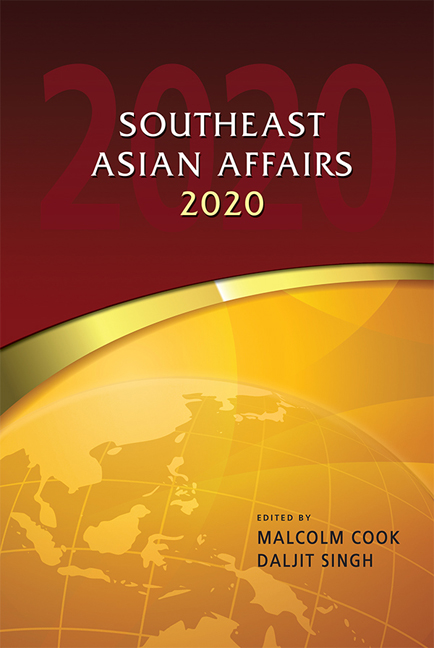The Rise of the Right: Populism and Authoritarianism in Southeast Asian Politics
Published online by Cambridge University Press: 24 November 2020
Summary
After the global economic crisis of 2008, there has been a trend towards a configuration of institutions and ideologies of state-society relations with a more intensified authoritarian form. At the heart of these political changes is the rise of right-wing political and ideological forces that seek to use religious, ethnic and/ or national communities to build coalitions which are hostile to pluralist politics. This trend is combined with the deepening of the neoliberal market-reform agenda within a more authoritarian framework, especially in a further consolidation of politically linked domestic conglomerates. As such, it marks a shift from the technocratic governance—combined with the social forces that supported it—that had underpinned neoliberal reform over three decades. These mark the political changes that occurred over the long 1990s in Southeast Asia, which is a period that covers the implementation—albeit haltingly—of the Washington consensus and neoliberal policies, the establishment of the World Trade Organization (WTO), the collapse of the Soviet Union and the socialist project, as well as a push towards democratic polities.
In this chapter, I focus on Indonesia and the Philippines—two countries seen as the democratic benchmarks over the last two decades—as these nations now move in an increasingly authoritarian direction. The first term of President Jokowi's presidency saw a range of illiberal trends, such as the use of legislative means to criminalize political opposition, the passing of social conservative legislation, the increasing role of the security agencies in the political process, the growth of paramilitaries linked to right-wing parties, and the gutting of oversight institutions. The recent elevation of his presidential election opponent Prabowo Subianto to the cabinet suggests that these trends will—if anything—intensify in Jokowi's second term. In the Philippines, the election of President Duterte has led to a spate of extrajudicial killings, the intimidation of political opponents and journalists, and the stacking of courts such as the Supreme Court of the Philippines. As such, both Indonesia and the Philippines provide a window into the drivers of the new authoritarian climate in Southeast Asia. In Thailand, despite the attempt by the junta to provide some form of legitimacy to its rule—via its recent election—there has been only an intensification of the junta's authoritarian rule.
Neoliberalism, Democratic Transitions and the Politics of Governance
The standard model of the transition to democracy has always been problematic in Southeast Asia.
- Type
- Chapter
- Information
- Southeast Asian Affairs 2020 , pp. 43 - 56Publisher: ISEAS–Yusof Ishak InstitutePrint publication year: 2020

